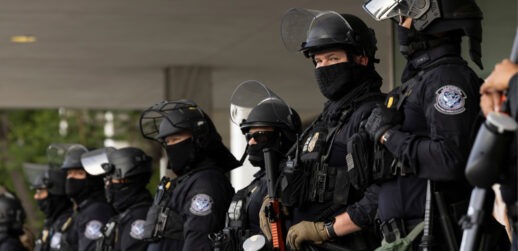Orlando hotelier Harris Rosen thinks hotels should be given more leeway by the public sector in deciding how best to reopen to the public—but also that national guidelines from the federal government would be welcome.
Rosen hosted a roundtable this week in a ballroom at his Rosen Shingle Creek Resort on how best and most quickly to restart tourism and meetings in the aftermath of COVID-19. Vice President Mike Pence; Roger Dow, president and CEO of U.S. Travel Association; Florida Governor Ron DeSantis and other Florida tourism industry leaders attended.
More: The Art of Raising an Extended Family
In a freewheeling interview following the meeting, Rosen said he told those in attendance that if something isn’t done quickly, “Tourism as we know it in Central Florida would never return.
“But I didn’t want to leave everyone in despair, so I said there’s an answer… You provide an opportunity for every single business to open as quickly as they can or are inclined to. But they must agree to screen every one of their employees, every single day. Number two, they must agree to screen every single client, customer or guest upon arrival. Nobody gains access to the facility without first being screened.”
In general, Rosen says he believes restrictions on business reopenings instituted by state and local authorities are too inflexible. “My inclination,” he said, “would be to waive all restrictions.” He pointed to the example of two Orlando neighbors, Walt Disney World Resort, which just reopened its shopping and dining complex, and Universal Orlando Resort, which plans to reopen its theme park June 5. “Both are screening, screening, screening, and requiring masks, masks, masks and distance, distance. They’re doing it because they think it’s the right thing to do.”
Rosen owns and operates eight hotels in Orlando. “Right now, one of them is open, running at a disgraceful 15 percent occupancy. I’m spending $6 million every month to keep seven hotels closed and one open. I’m also paying a fairly substantial percentage of my employees’ salaries. But there’s only so long I can do that.
“Yet we screen every employee every day; we screen everyone entering the building.”
Asked about not being able to detect employees or guests who have the virus but are asymptomatic, Rosen replied, “It’s not perfect. When you step into your car or into a plane, are you 100 percent certain you won’t crash? Life is full of uncertainties. If we had a test that we could administer that got results in a minute, we would do that in a heartbeat.
“The public sector,” he said, “doesn’t really understand the trauma this has caused. We have to open our economy, or it will be too late.”
Rosen’s vision for the resumption of meetings, in addition to daily screenings, is maintaining the six-foot distancing requirement. “We don’t believe masks are essential with group meetings. It would make things uncomfortable,” he said.
Rosen said he had not heard from Vice President Pence or the other attendees since the roundtable ended.
A press release by U.S. Travel after the meeting related that the latest data shows that travel-related unemployment in the U.S. is now at 51 percent—more than double the worst national unemployment rate recorded during the Great Depression (25 percent).
More: 3 Tips for Managing Coronavirus Fear in the Meetings Industry
“It’s a difficult time in every corner of the country, but the pandemic has been particularly dire for the American travel industry, which before the crisis supported 15.8 million jobs and $2.5 trillion in annual economic activity,” Dow said in the release. “Our discussion with Vice President Pence affirmed this administration’s understanding that travel faces unique challenges but could help power a strong rebound with the right policies in place—including our suggestion of an ‘Explore America’ tax credit the president spoke favorably of yesterday.”




